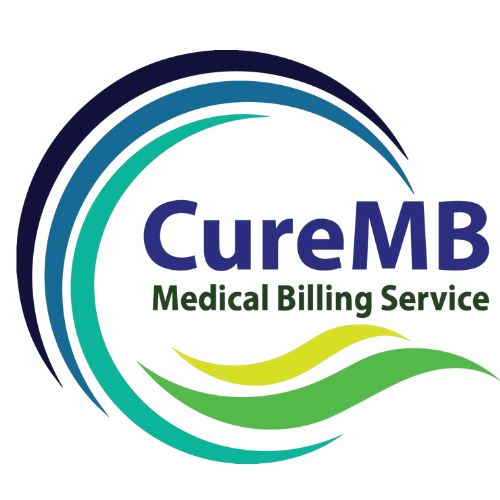Effective medical billing is essential for the financial health of small medical practices. However, mistakes in the billing process can lead to delayed payments, claim denials, and even financial losses. Inaccurate billing not only affects revenue but can also create significant administrative burdens. By recognizing common medical billing mistakes and knowing how to avoid them, small practices can ensure smoother revenue cycles and better financial outcomes.
In this blog post, we will explore the most frequent medical billing mistakes, providing actionable tips to avoid them and ensuring the accuracy and efficiency of your medical billing processes.
1. Incorrect Patient Information: A Simple Yet Costly Mistake for Small Practices
One of the most common billing mistakes involves entering incorrect or incomplete patient information. This can include errors such as wrong insurance details, misspelled names, incorrect dates of birth, or inaccurate addresses. These errors often lead to rejected claims, delayed payments, and potential frustration for both patients and staff.
How to Avoid It:
- Verify Patient Information at Check-In: To prevent errors, always verify patient details before services are rendered. Ensure that insurance details are up-to-date and accurate.
- Use Electronic Verification Tools: Leverage medical billing software that automatically checks patient information for accuracy before submission to reduce the likelihood of these errors.
By taking these proactive steps, your medical billing service for small practices can streamline data entry and ensure timely claim processing.
2. Using the Wrong ICD-10 Codes: The Importance of Accurate Medical Coding
ICD-10 codes are crucial for proper medical billing, as they identify diagnoses and medical conditions. However, using the wrong code is one of the most frequent billing mistakes. Incorrect coding can lead to claim rejections, underpayments, or even potential audits.
How to Avoid It:
- Stay Updated with Code Changes: Regularly review the latest updates to ICD-10 codes to ensure accuracy.
- Utilize Coding Software: Most modern billing systems come with automated tools that can help you select the correct code for each diagnosis. This reduces human error and saves time.
- Ongoing Staff Training: Make sure your billing staff is well-versed in the nuances of medical coding and attends regular training sessions to stay informed.
By consistently applying correct codes, your practice can reduce denials and improve the accuracy of submitted claims.
3. Failure to Verify Insurance Coverage: The Hidden Cost of Overlooking Insurance Eligibility
Verifying insurance coverage before services are provided is essential. Failing to do so can lead to unexpected out-of-pocket expenses for patients and result in claims being denied or delayed.
How to Avoid It:
- Always Verify Insurance Eligibility: Before any treatment, verify your patient’s insurance coverage. Check the patient’s policy to confirm details like copays, deductibles, and coverage limits.
- Use Insurance Verification Portals: Many insurance companies now offer online portals where providers can verify patient eligibility instantly.
By confirming coverage in advance, you can minimize the risk of denied claims and ensure a smoother billing process for both your practice and your patients.
4. Not Obtaining Prior Authorization: Why It’s Essential for Certain Medical Services
Certain treatments or medical procedures require prior authorization from insurance companies. Without this approval, your claims could be denied, or the patient may be responsible for the full cost of services.
How to Avoid It:
- Understand Which Services Require Prior Authorization: Stay up-to-date with insurance policies regarding prior authorization requirements for specific procedures.
- Submit Prior Authorization Requests Early: Start the authorization process early to avoid delays in treatment or claim submission.
By staying proactive and ensuring prior authorizations are secured, your practice can avoid costly claim denials.
5. Duplicate Billing: Avoid Billing the Same Service More Than Once
Duplicate billing occurs when a service is billed more than once, either by mistake or due to confusion in the billing process. This common error leads to financial discrepancies and can even result in compliance violations.
How to Avoid It:
- Review All Claims Before Submission: Implement a robust system for checking claims for duplicates before submission to ensure each service is billed only once.
- Utilize Automated Billing Tools: Use billing software that automatically flags potential duplicate claims, allowing your team to address the issue before submitting them.
By preventing duplicate billing, you can ensure that claims are accurate, and your practice receives the correct payment without unnecessary delays.
6. Not Following Up on Denied Claims: The Key to Recovering Lost Revenue
One of the biggest mistakes small practices make is not following up on denied claims. While denials are common, they are often resolvable with the right follow-up actions, such as providing additional documentation or clarifying errors.
How to Avoid It:
- Track Claims and Denials: Keep a log of all claims and their statuses. If a claim is denied, determine the reason for the denial and promptly take corrective action.
- Appeal Denied Claims: If the claim denial is unjustified, don’t hesitate to appeal. Submit the necessary documentation and resubmit the claim for reconsideration.
By diligently following up on denied claims, your practice can recover lost revenue and improve the efficiency of your billing system.
7. Incorrect Use of Modifiers: Ensuring Proper Coding for Complex Procedures
Modifiers are used in medical billing to provide additional context to procedures, such as indicating that a service was altered in some way. Incorrect use of modifiers can lead to billing errors and claim denials.
How to Avoid It:
- Learn Modifier Guidelines: Familiarize yourself with the correct use of modifiers and the guidelines for each.
- Verify Modifier Application: Ensure that the right modifier is applied to the correct procedure to avoid claims being denied for improper coding.
By ensuring proper modifier usage, you can streamline your billing process and prevent unnecessary delays.
8. Not Submitting Claims on Time: The Impact of Delayed Billing
Many insurance companies have strict deadlines for submitting claims, and missing these deadlines can result in claim rejections. Late submissions can significantly hinder cash flow and delay payment processing.
How to Avoid It:
- Submit Claims Promptly: To avoid missing deadlines, submit claims as soon as possible after services are provided. This helps ensure timely processing and reduces the risk of late submissions.
- Leverage Automated Billing Systems: Use billing software that automates the claim submission process to ensure claims are sent on time.
Timely submissions are key to maintaining a steady cash flow and preventing delays in payment.
9. Incorrect or Missing Diagnosis Linking: The Importance of Accurate Documentation
One of the most common errors in medical billing is failing to properly link diagnosis codes with procedure codes. This disconnect can lead to incorrect payments, claim rejections, or compliance issues.
How to Avoid It:
- Ensure Accurate Diagnosis Linking: Carefully link each diagnosis to the corresponding procedure code. This prevents issues with claim approval and ensures proper reimbursement.
- Double-Check Documentation: Always double-check the documentation to ensure the diagnosis codes accurately reflect the services provided.
Accurate diagnosis linking helps maintain the integrity of your billing process and reduces the risk of denials.
Conclusion: How CureMB Medical Billing Services for Small Practices Can Help
Medical billing errors are inevitable, but they don’t have to be catastrophic. By understanding the common mistakes outlined in this blog and taking the necessary steps to avoid them, small practices can enhance their billing accuracy, improve cash flow, and minimize administrative burdens.
For practices that want to ensure their billing processes are error-free and efficient, outsourcing to a medical billing service for small practices like CureMB can be a game changer. With expert knowledge, advanced billing technology, and dedicated support, CureMB helps small practices streamline their billing processes, reduce errors, and ensure compliance with all relevant regulations.
Contact Us for Expert Medical Billing Services
If you’re looking to streamline your practice’s billing process and avoid common medical billing mistakes, CureMB is here to help. Our team of experienced professionals is dedicated to providing accurate, timely, and efficient medical billing services tailored to small practices like yours.
We understand that every practice is unique, and we offer customized solutions to meet your specific needs. Let us take the billing burden off your shoulders so you can focus on what matters most—providing quality care to your patients.




26 Comments
Your comment is awaiting moderation.
Points per game, average calculations for interrupted seasons
Your comment is awaiting moderation.
Headers, aerial goals and their frequency by player tracked
Your comment is awaiting moderation.
捕风追影线上看平台,專為海外華人設計,提供高清視頻和直播服務。
Your comment is awaiting moderation.
我們的運彩世足專家團隊採用機器學習智能預測,每日更新各大聯盟的比賽分析,包括NBA、MLB、中華職棒等。
Your comment is awaiting moderation.
gPflBXQzlmYFCIITplSdOqU
Your comment is awaiting moderation.
Downloading Jiliparkdownload now! Ready for some top-notch gaming action. Fingers crossed for some big wins! Start playing at jiliparkdownload!
Your comment is awaiting moderation.
Hovardabet Giriş… another Turkish site, guessing from the Giriş. Probably a login page for Hovardabet. Always good to be cautious when clicking on links like this. Find the site here: hovardabetgiris
Your comment is awaiting moderation.
Hi, I do think this is an excellent site. I stumbledupon it 😉
I will revisit yet again since i have book marked it.
Money and freedom is the best way to change, may you be rich and continue to help others.
Your comment is awaiting moderation.
5b5nyn
Your comment is awaiting moderation.
Приветствую, искатели рождественского чуда! В преддверии самых сказочных дней в году, когда сердце замирает в ожидании волшебства, я хочу поделиться с вами секретом идеальной новогодней ели. И имя ей – величественная пихта Нордмана!
Забудьте о мимолетной красоте и осыпающихся иголках! Нордманская пихта – это долговечность и элегантность в одном флаконе. Представьте себе: стройная красавица с густой, насыщенной зеленью, которая гордо возвышается в вашей гостиной, озаряя все вокруг своим благородством. Ее мягкие, неколючие иголки так приятно трогать, а ветви идеально расположены для украшения любыми игрушками. Подскажите где елка пихта
Your comment is awaiting moderation.
Гидравлические моторы, или гидромоторы, – это устройства, преобразующие энергию гидравлической жидкости в механическую энергию вращения. Они являются ключевым элементом гидравлических систем, обеспечивая мощное и управляемое движение в широком спектре промышленных и мобильных приложений.
Принцип работы гидромотора основан на использовании давления жидкости для перемещения поршней, шестерен или пластин, что приводит к вращению выходного вала. Конструкция гидромоторов варьируется в зависимости от типа, но обычно включает корпус, ротор (или его аналог), распределительный механизм и уплотнения. Подскажите где лучший гидравлика
Your comment is awaiting moderation.
32win12… I’m always skeptical of these names, are they trying to be lucky number themed? Anyways, has anyone actually won anything significant from them? Enquiring minds want to know before dipping in! Give 32win12 a look.
Your comment is awaiting moderation.
yfVsOJeTlnzRXXIKJzAmKQin
Your comment is awaiting moderation.
knp8vm
Your comment is awaiting moderation.
4x0i0w
Your comment is awaiting moderation.
xd6ce8
Your comment is awaiting moderation.
xd6ce8
Your comment is awaiting moderation.
b9xaev
Your comment is awaiting moderation.
Selamlar, biz Bursa’da düğün, nişan ve kurumsal etkinlikler düzenleyen bir firmayız. Yaptığımız işleri Instagram’da paylaşıyoruz ama web sitemiz biraz atıl kalmıştı. “Bursa düğün organizasyon firmaları” aramasında görünür olmak istiyoruz. Aklıma şöyle bir fikir geldi: Sitemizin blogunda “Bursa’daki En İyi 10 Kır Düğünü Mekanı”, “Şirket Lansmanı İçin Organizasyon Fikirleri” gibi listeler ve rehberler yayınlayabiliriz. Bu içerikler hem evlenecek çiftlerin hem de şirketlerin ilgisini çekecektir. Bursa SEO sadece teknik bir iş değil, aynı zamanda yaratıcılık da gerektiriyormuş.
Your comment is awaiting moderation.
Selamlar, biz Bursa’da düğün, nişan ve kurumsal etkinlikler düzenleyen bir firmayız. Yaptığımız işleri Instagram’da paylaşıyoruz ama web sitemiz biraz atıl kalmıştı. “Bursa düğün organizasyon firmaları” aramasında görünür olmak istiyoruz. Aklıma şöyle bir fikir geldi: Sitemizin blogunda “Bursa’daki En İyi 10 Kır Düğünü Mekanı”, “Şirket Lansmanı İçin Organizasyon Fikirleri” gibi listeler ve rehberler yayınlayabiliriz. Bu içerikler hem evlenecek çiftlerin hem de şirketlerin ilgisini çekecektir. Bursa SEO sadece teknik bir iş değil, aynı zamanda yaratıcılık da gerektiriyormuş.
Your comment is awaiting moderation.
İyi günler, Bursa’da bir sürücü kursumuz var. Rekabet o kadar arttı ki, fiyat kırmaktan başka bir şey yapamıyoruz. Artık farklı bir yol denemeye karar verdim. Web sitemizin blogunda “Bursa’da direksiyon sınavı güzergahları ve ipuçları”, “Elektronik sınavda en çok çıkan sorular”, “Sıfırdan araba kullanmayı öğrenme rehberi” gibi içerikler üreteceğiz. Bu sayede sadece kurs arayanları değil, ehliyet süreciyle ilgili bilgi arayan tüm adayları sitemize çekebiliriz. Bu içerik odaklı Bursa SEO stratejisi, bizi sadece fiyatla rekabet etmekten kurtaracak.
Your comment is awaiting moderation.
Değerli arkadaşlar, ben Bursa’da faaliyet gösteren bir yeminli mali müşavirim. Bizim mesleğimizde reklam yapmak yasak ve etik değil. Ancak mükellefleri ve potansiyel mükellefleri bilgilendirmek serbest. Web sitemi bu amaçla kullanıyorum. “Yeni Şirket Kuruluşu ve Vergi Süreçleri”, “Bursa’daki KOSGEB Destekleri”, “e-Fatura’ya Geçiş Rehberi” gibi konularda makaleler yayınlıyorum. Bu sayede uzmanlığımı ortaya koyarken, internette araştırma yapan bir şirket sahibinin bana ulaşmasını sağlayabiliyorum. Bursa SEO, bizim gibi meslekler için en doğru dijital pazarlama yöntemidir.
Your comment is awaiting moderation.
İyi çalışmalar dilerim. Bursa’da (Görükle’de) bir dil okulumuz var. Öğrencilerimiz genellikle üniversite çevresinden geliyor ama kurumsal firmalara ve beyaz yakalılara da ulaşmak istiyoruz. “Bursa İngilizce kursu” gibi aramalarda o kadar çok rakip var ki, reklam vermeden ön plana çıkmak neredeyse imkansız. Son zamanlarda web sitemizin içeriklerini zenginleştirmeye karar verdik. “İş İngilizcesi için 5 Altın Kural”, “Almanya’ya Gitmeden Önce Öğrenilmesi Gereken 10 Cümle” gibi blog yazılarıyla hem bilgi verip hem de kurslarımıza trafik çekmeyi hedefliyoruz. Bu tarz bir içerik odaklı bursa seo stratejisinin, sürekli reklam bütçesi ayırmaktan daha uzun vadeli bir yatırım olduğunu düşünüyorum. Bu yöntemi deneyip başarılı olan başka eğitim kurumları var mı aramızda?
Your comment is awaiting moderation.
İyi günler. Yıllardır Bursa’da sigorta acenteliği yapıyorum. Bizim işimiz tamamen güven ve birebir ilişki üzerine kuruludur. İnternet bize çok uzak bir dünyaydı. Ancak yeni neslin artık sigorta acentesini bile internetten aradığını görüyorum. “Bursa en uygun trafik sigortası” veya “tamamlayıcı sağlık sigortası tavsiyesi” gibi aramalarda neden ben çıkmayayım? Siteme sigortacılıkla ilgili temel bilgileri, hasar anında yapılması gerekenleri anlatan bir bölüm eklemeyi düşünüyorum. Bu bursa seo çalışmaları, geleneksel iş kollarının bile dijitalleşmek zorunda olduğunun bir kanıtı.
Your comment is awaiting moderation.
İyi günler. Yıllardır Bursa’da sigorta acenteliği yapıyorum. Bizim işimiz tamamen güven ve birebir ilişki üzerine kuruludur. İnternet bize çok uzak bir dünyaydı. Ancak yeni neslin artık sigorta acentesini bile internetten aradığını görüyorum. “Bursa en uygun trafik sigortası” veya “tamamlayıcı sağlık sigortası tavsiyesi” gibi aramalarda neden ben çıkmayayım? Siteme sigortacılıkla ilgili temel bilgileri, hasar anında yapılması gerekenleri anlatan bir bölüm eklemeyi düşünüyorum. Bu bursa seo çalışmaları, geleneksel iş kollarının bile dijitalleşmek zorunda olduğunun bir kanıtı.
Your comment is awaiting moderation.
Selamlar, biz Bursa’da düğün, nişan ve kurumsal etkinlikler düzenleyen bir firmayız. Yaptığımız işleri Instagram’da paylaşıyoruz ama web sitemiz biraz atıl kalmıştı. “Bursa düğün organizasyon firmaları” aramasında görünür olmak istiyoruz. Aklıma şöyle bir fikir geldi: Sitemizin blogunda “Bursa’daki En İyi 10 Kır Düğünü Mekanı”, “Şirket Lansmanı İçin Organizasyon Fikirleri” gibi listeler ve rehberler yayınlayabiliriz. Bu içerikler hem evlenecek çiftlerin hem de şirketlerin ilgisini çekecektir. Bursa SEO sadece teknik bir iş değil, aynı zamanda yaratıcılık da gerektiriyormuş.
Your comment is awaiting moderation.
Merhaba gezgin ruhlar! Ben Bursa’da serbest zamanlı olarak tarihi ve kültürel turlar düzenleyen bir rehberim. Koza Han, Ulu Cami, Cumalıkızık gibi yerleri anlatıyorum. Müşterilerim genelde otellerin yönlendirmesiyle geliyor. Kendi web sitem üzerinden doğrudan turistlere ulaşmak istiyorum. “Bursa’da günübirlik ne yapılır?”, “Bursa’nın tarihi yerleri” gibi konularda detaylı ve fotoğraflı gezi yazıları hazırlamanın beni aramalarda üst sıralara taşıyabileceğini düşünüyorum. Bu Bursa SEO konusunu çözebilirsem, aracılar olmadan kendi işimin patronu olabilirim.
Your comment is awaiting moderation.
Kasko yaptırırken bazı sigorta şirketlerinin araç kamerası olan araçlara indirim uyguladığını duymuştum. Bu konunun doğruluğunu araştırıp ona göre bir bursa araç kamerası yatırımı yapacağım. Hem güvenliğimizi hem bütçemizi korur.
Your comment is awaiting moderation.
Yazınızda bahsettiğiniz G-sensör özelliği çok mantıklı. Allah korusun bir kaza anında o paniğe kapılıp kaydı korumayı unutabiliriz. Bu özelliği olan bir bursa araç kamerası bakacağım, aydınlattığınız için sağ olun.
Your comment is awaiting moderation.
Benzer bir ürün kullanıyorum ve kesinlikle herkese tavsiye ederim. Özellikle Organize Sanayi Bölgesi trafiğinde sabah ve akşam saatlerinde çok faydasını gördüm. İyi bir bursa araç kamerası gerçekten hayat kurtarabilir.
Your comment is awaiting moderation.
Bilgiler için çok sağ olun. Ben özellikle park halindeyken de kayıt yapabilen bir model arıyordum. Nilüfer gibi kalabalık yerlerde park etmek büyük sorun. Sanırım benim için en ideali hareket sensörlü bir bursa araç kamerası olacak.
Your comment is awaiting moderation.
Daha önce araç kamerası kullanma konusunda tereddütlerim vardı, gereksiz bir masraf gibi geliyordu. Ancak trafikte yaşananları gördükçe bir bursa araç kamerası taktırmanın lüks değil, ihtiyaç olduğunu anladım. Verdiğiniz bilgiler için teşekkürler.
Your comment is awaiting moderation.
Bilgiler için çok sağ olun. Ben özellikle park halindeyken de kayıt yapabilen bir model arıyordum. Nilüfer gibi kalabalık yerlerde park etmek büyük sorun. Sanırım benim için en ideali hareket sensörlü bir bursa araç kamerası olacak.
Your comment is awaiting moderation.
Daha önce araç kamerası kullanma konusunda tereddütlerim vardı, gereksiz bir masraf gibi geliyordu. Ancak trafikte yaşananları gördükçe bir bursa araç kamerası taktırmanın lüks değil, ihtiyaç olduğunu anladım. Verdiğiniz bilgiler için teşekkürler.
Your comment is awaiting moderation.
Kasko yaptırırken bazı sigorta şirketlerinin araç kamerası olan araçlara indirim uyguladığını duymuştum. Bu konunun doğruluğunu araştırıp ona göre bir bursa araç kamerası yatırımı yapacağım. Hem güvenliğimizi hem bütçemizi korur.
Your comment is awaiting moderation.
Bu makale, bir bursa araç kamerası satın almadan önce nelere dikkat etmem gerektiğini net bir şekilde özetlemiş. Özellikle çözünürlük ve lens açısının önemini şimdi daha iyi anlıyorum. Emeğiniz için teşekkürler.
Your comment is awaiting moderation.
Yazınızda bahsettiğiniz G-sensör özelliği çok mantıklı. Allah korusun bir kaza anında o paniğe kapılıp kaydı korumayı unutabiliriz. Bu özelliği olan bir bursa araç kamerası bakacağım, aydınlattığınız için sağ olun.
Your comment is awaiting moderation.
Bu yazıyı okuyana kadar araç kameralarının bu kadar çok farklı özelliği olduğunu bilmiyordum. GPS takibi yapabilen bir bursa araç kamerası özellikle uzun yola çıkanlar veya aracını başkasına emanet edenler için büyük kolaylık.
Your comment is awaiting moderation.
Yazınızda bahsettiğiniz G-sensör özelliği çok mantıklı. Allah korusun bir kaza anında o paniğe kapılıp kaydı korumayı unutabiliriz. Bu özelliği olan bir bursa araç kamerası bakacağım, aydınlattığınız için sağ olun.
Your comment is awaiting moderation.
Çift yönlü kayıt yapabilen, yani hem yolu hem de aracın içini çeken bir bursa araç kamerası ticari taksiler için çok önemli. Hem sürücünün hem de yolcunun güvenliği için standart hale gelmesi gerektiğini düşünüyorum.
Your comment is awaiting moderation.
Bilgiler için çok sağ olun. Ben özellikle park halindeyken de kayıt yapabilen bir model arıyordum. Nilüfer gibi kalabalık yerlerde park etmek büyük sorun. Sanırım benim için en ideali hareket sensörlü bir bursa araç kamerası olacak.
Your comment is awaiting moderation.
Ben profesyonel olarak direksiyon sallıyorum ve güvenlik benim için ilk sırada. Şirket araçlarımızın hepsinde olduğu gibi şahsi aracıma da bir bursa araç kamerası taktırmak istiyorum. Hem caydırıcı oluyor hem de olası bir durumda sigorta süreçlerini hızlandırıyor.
Your comment is awaiting moderation.
Geçen ay küçük bir kazaya karıştım ve haklı olmama rağmen ispatlamakta zorlandım. O günden sonra hemen bir bursa araç kamerası araştırmaya başladım. Keşke bu olayı yaşamadan önce bu yazıyı okuyup önlemimi alsaydım.
Your comment is awaiting moderation.
Bilgiler için çok sağ olun. Ben özellikle park halindeyken de kayıt yapabilen bir model arıyordum. Nilüfer gibi kalabalık yerlerde park etmek büyük sorun. Sanırım benim için en ideali hareket sensörlü bir bursa araç kamerası olacak.
Your comment is awaiting moderation.
Harika bir yazı olmuş, teşekkürler. Özellikle Bursa’nın yoğun trafiğinde neyle karşılaşacağımız belli olmuyor. Olası bir durumda elimde kanıt olması için kaliteli bir bursa araç kamerası almayı düşünüyorum. Bu yazı karar vermemde çok yardımcı oldu.
Your comment is awaiting moderation.
siteniz çok güzel devasa bilgilendirme var aradığım herşey burada mevcut çok teşekkür ederim
Your comment is awaiting moderation.
siteniz çok güzel devasa bilgilendirme var aradığım herşey burada mevcut çok teşekkür ederim
Your comment is awaiting moderation.
siteniz çok güzel devasa bilgilendirme var aradığım herşey burada mevcut çok teşekkür ederim
Your comment is awaiting moderation.
siteniz harika başarılarınızın devamını dilerim aradığım herşey bu sitede
Your comment is awaiting moderation.
siteniz çok güzel devasa bilgilendirme var aradığım herşey burada mevcut çok teşekkür ederim
Your comment is awaiting moderation.
siteniz harika ben daha önce böyle güzel bir site görmedim makaleler çok açıklayıcı ve bilgilendirici çok site gezdim ve en sonunda sizin sitenizde buldum
Your comment is awaiting moderation.
https://shorturl.fm/bhTS1
Your comment is awaiting moderation.
https://shorturl.fm/2NiIw
Your comment is awaiting moderation.
https://shorturl.fm/gjoEC
Your comment is awaiting moderation.
https://shorturl.fm/qiYsP
Your comment is awaiting moderation.
https://shorturl.fm/QcE9P
Your comment is awaiting moderation.
https://shorturl.fm/o19Xv
Your comment is awaiting moderation.
https://shorturl.fm/nvWjt
Your comment is awaiting moderation.
https://shorturl.fm/4lZRL
Your comment is awaiting moderation.
https://shorturl.fm/aVMEh
Your comment is awaiting moderation.
https://shorturl.fm/tFqIw
Your comment is awaiting moderation.
https://shorturl.fm/XVgWu
Your comment is awaiting moderation.
https://shorturl.fm/mh658
Your comment is awaiting moderation.
https://shorturl.fm/FO0Hj
Your comment is awaiting moderation.
https://shorturl.fm/gBnk2
Your comment is awaiting moderation.
https://shorturl.fm/X6uUY
Your comment is awaiting moderation.
https://shorturl.fm/ogBOW
Your comment is awaiting moderation.
https://shorturl.fm/cfDVW
Your comment is awaiting moderation.
Turn your audience into earnings—become an affiliate partner today! https://shorturl.fm/Qv950
Your comment is awaiting moderation.
Apply now and receive dedicated support for affiliates! https://shorturl.fm/MCfK5
Your comment is awaiting moderation.
Unlock exclusive rewards with every referral—apply to our affiliate program now! https://shorturl.fm/O6NkV
Your comment is awaiting moderation.
Apply now and receive dedicated support for affiliates! https://shorturl.fm/d9TQr
Your comment is awaiting moderation.
https://shorturl.fm/JtG9d
Your comment is awaiting moderation.
https://shorturl.fm/N6nl1
Your comment is awaiting moderation.
https://shorturl.fm/9fnIC
Your comment is awaiting moderation.
https://shorturl.fm/YvSxU
Your comment is awaiting moderation.
https://shorturl.fm/9fnIC
Your comment is awaiting moderation.
https://shorturl.fm/FIJkD
Your comment is awaiting moderation.
https://shorturl.fm/YvSxU
Your comment is awaiting moderation.
https://shorturl.fm/A5ni8
Your comment is awaiting moderation.
https://shorturl.fm/68Y8V
Your comment is awaiting moderation.
https://shorturl.fm/5JO3e
Your comment is awaiting moderation.
Very good https://shorturl.fm/TbTre
Your comment is awaiting moderation.
Awesome https://shorturl.fm/5JO3e
Your comment is awaiting moderation.
Awesome https://shorturl.fm/5JO3e
Very good
Good
Awesome
Awesome
Awesome
Awesome
Good
Awesome
Good
Good
Good
Awesome
Very good
Very good
Awesome
Awesome
Very good
Awesome
Awesome
Very good
Awesome
Awesome
Good
Awesome
Good
Awesome